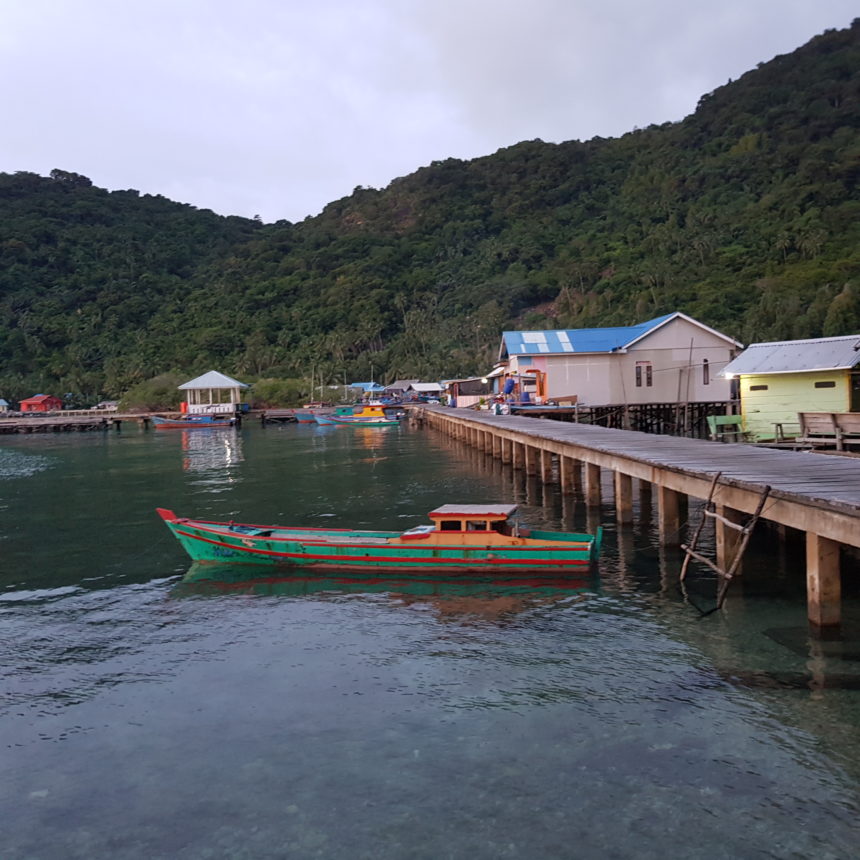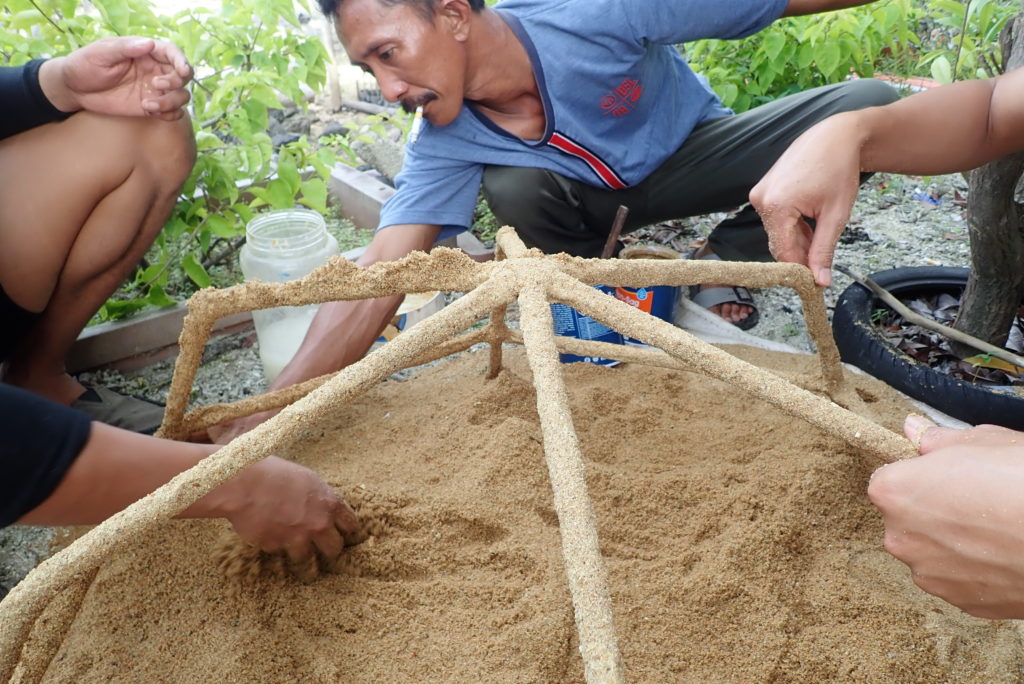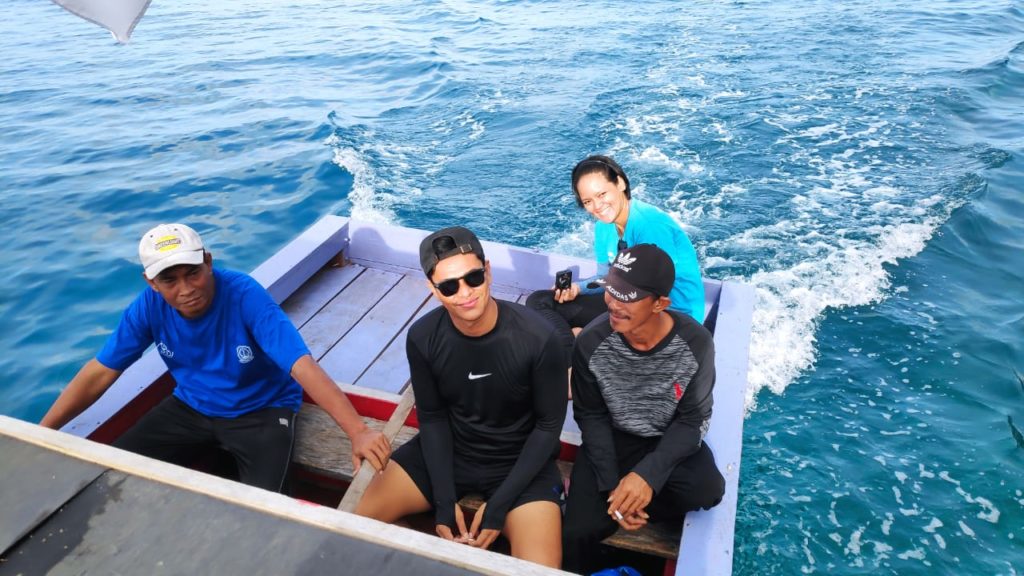Today marks the seventh of my stay in Kiabu Village, Anambas Islands. It’s only been a month since I received the news that I got the job as the Marine Conservation Program Assistant at the foundation, thus beginning a new chapter in my career at a new place that is thousands of kilometers away from my hometown in Bogor.
It’s raining today, reminding me of the town I grew up in that’s popular as the Rainy City of Indonesia. Kiabu is the southernmost Village of Anambas Islands Regency, it’s located on Airabu Island where the majority of the population resides on the western part of this big island. Traveling here was quite challenging, both Dennis —Marine Conservation Programme Manager — and I are still adjusting and settling in, we’re getting used to not having a fast internet connection and limited access to electricity that’s only available from 05:00 p.m. till midnight. This idyllic village has picturesque sceneries and a friendly tight-knight community where everyone knows each other and they regularly hold community-based activities like neighborhood clean-ups and volley games every afternoon.
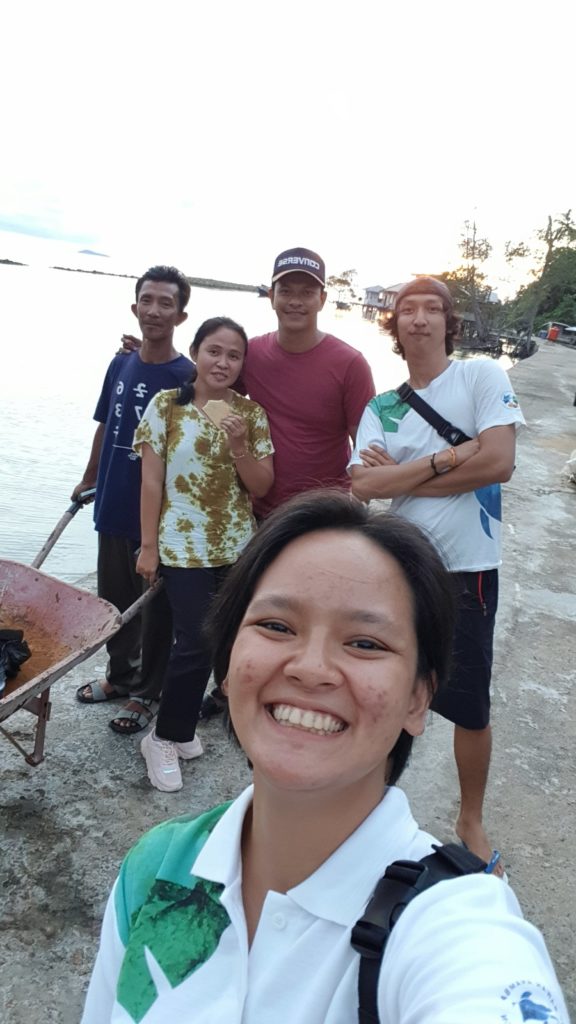
On today’s agenda is a meeting with bang Agus, the Head of Kiabu Fishing Community; Geri, the foundation’s Kiabu facilitator is taking us to his house. Another good thing about living in Kiabu is the short commute, it only takes us five minutes to reach the destination. When we arrive, bang Agus himself warmly welcomes us into his house that’s decorated with plenty of merit certificates and photos of him with high-ranking officials. Apparently, the man is an influential figure among fishermen, he is very active in voicing out the aspirations of the community to the government.
As we begin to chat, he tells us that Kiabu fishermen have recently received a monitoring boat given by LOKA KKPN Pekanbaru (National Marine Conservation Area) officials. It was bang Agus that had requested the boat. He is worried about overseas fishermen that often come to this area illegally for fishing, they are equipped with modern fishing gear whilst local fishermen only have traditional ones. Apart from causing a major overfishing problem in the area, their fishing equipment also destroys coral reefs and disrupting the marine ecosystems.
He is excited about the presence of the Anambas Foundation’s Marine Conservation team in Kiabu and looks forward to the implementation of our programs that will restore the marine ecosystems in the area.
We chat for a while until it’s time for us to go home. We leave bang Agus’ place feeling hopeful because of the support from him and that our marine programs will be beneficial to the Kiabu community.
As this is the first time the foundation’s marine program is being implemented in Kiabu, Dennis and I spend most of our days doing preparatory work, from meeting with government officials, making coral spiders for coral restoration to touring around the village to know the community better. We already have several new programs that we are going to introduce next year and we are going to implement them all together with Kiabu residents. I’m very enthusiastic about starting this new adventure and can’t wait to carry out all these new programs, all the while meeting new people along the way. Wish me luck!
